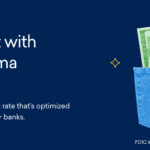Credit Karma’s Getting the Underwriting Models for Select U.S. Lenders – Here’s How That’s Good for You
Credit Karma, a personal finance portal focused on providing individuals with access to credit scores, reports, monitoring and more, will soon be given access to what has long been closely held underwriting models from two of the five largest U.S. credit card issuers according to The Wall Street Journal.
For those unfamiliar, Credit Karma does not charge for any of its services. A portion of its revenues comes from offers (credit card and personal loans) it promotes on its site.
When a member applies, and is approved, for a credit card or personal loan through one of the links on the Credit Karma site, Credit Karma receives a commission as the referring entity.
Which is where the advantage of possessing the underwriting models of some lenders comes into play.
Knowing what criteria a lender uses to approve applicants, and comparing that to the information Credit Karma members have provided during the sign-up process, allows Credit Karma to recommend financial products to members for which approval is all but assured.
According to The Wall Street Journal article, “Credit-card companies and providers of unsecured consumer loans, known as personal loans, have started to share their closely guarded underwriting models with Credit Karma as part of a new service that is set to be announced as early as Monday. That gives the financial-technology company the ability to tell its users with near certainty which loans they’ll be approved for without them having to apply formally, a move that potentially spares them from getting denied and having that ding their credit score, Credit Karma Chief Executive Kenneth Lin said in an interview.”
Credit Karma has long provided “guidance” on which credit products an individual may have success applying. These recommendations, however, were/are based on Credit Karma’s own reverse-engineered criteria…or better put, its best guess based on what Credit Karma thinks a lender would value in an applicant.
Now that Credit Karma has access to the lenders’ actual underwriting models, there will be no more guessing, it will know which products will likely result in an approval for a specific member.
Which means a member may be more apt to log in to his/her Credit Karma account to apply for a new credit card where the card recommendations are more of a sure thing, rather than gambling and applying from another source.
And, in turn, Credit Karma earns more referral money as a result of the additional credit card applications and approvals coming from its site.
The only “fly in the ointment” right now is that no one is divulging the two lenders who will be providing Credit Karma with their underwriting models.
While Credit Karma’s Chief Executive Kenneth Lin declined to give specifics, he did state that the lenders providing this information “included two of the five largest [lenders].”
And, according to The Wall Street Journal article, the top five U.S. credit card issuers are American Express, Bank of America, Capital One Financial, Citigroup, and JPMorgan Chase.
So, two of the five listed credit card issuers will be providing information to Credit Karma allowing members to get an almost assured approval recommendation before pulling the application trigger.
Will Credit Karma alert members which credit card offers are “almost assured” and “not almost assured?”
While nothing has been said regarding that, either, I’m guessing Credit Karma will differentiate the recommendations in some way, if not come right out and state with which card issuers they have entered the underwriting model deal.
Otherwise, the advantage Credit Karma gains by this arrangement is moot.
Make no mistake, the credit card issuers are benefiting from this deal, too.
The number of credit cards issued has peaked in recent years, as has the amount of consumer debt.
Which, is a good thing in the larger personal financial picture.
But not such a good thing for credit card issuers and personal loan lenders.
Which is why some financial services companies are looking to Credit Karma – and possibly other similar businesses in the future – as sources for more financially secure and savvy borrowers to build their portfolios while keeping risk in check.
Will you be more likely to look to Credit Karma for your next credit card because of this arrangement?




